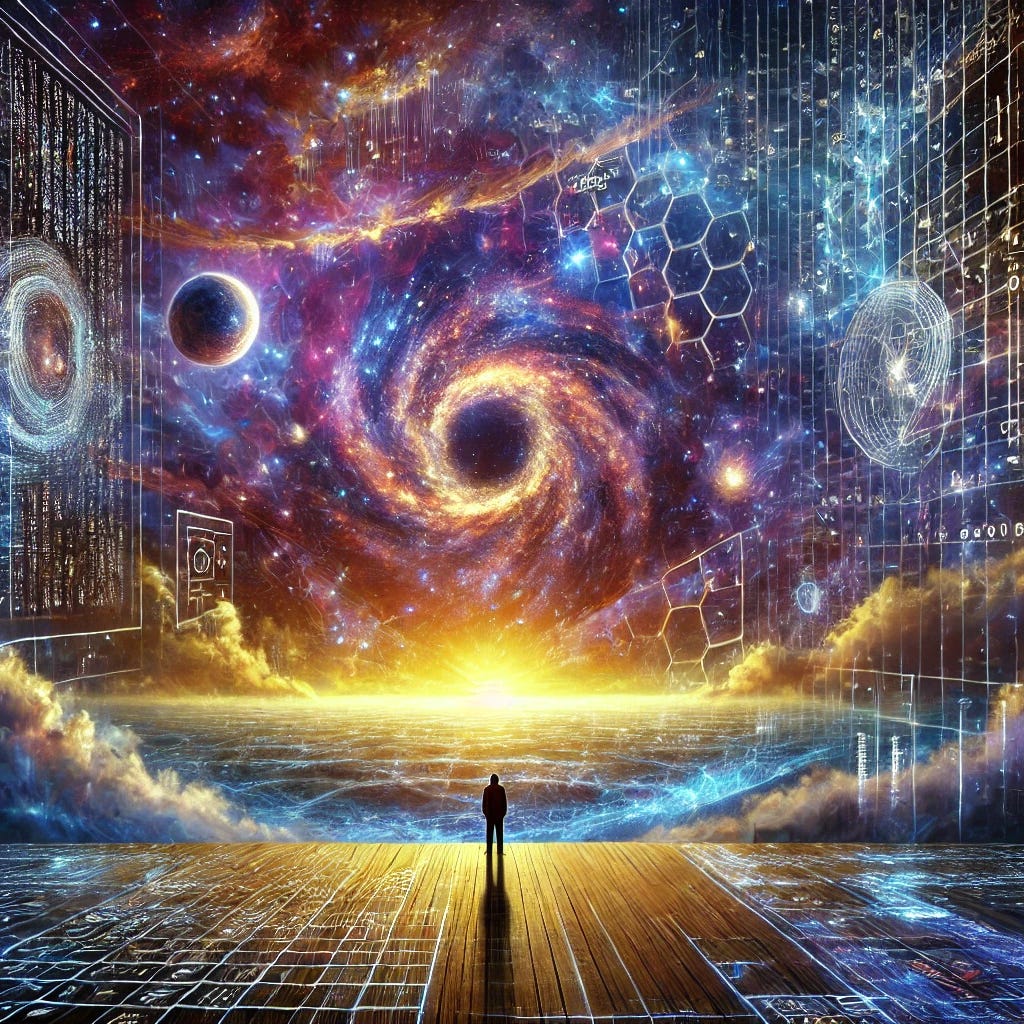Did Scientists Really Prove the Universe Does Not Exist?
No, scientists have not "proven" that the universe does not exist.
However, modern physics—particularly quantum mechanics and relativity—raises deep philosophical questions that challenge our intuitive understanding of reality. Let's break down why some interpretations make it seem as though the universe, at least in the way we perceive it, might not exist in an objective sense.
1. Quantum Mechanics and the Observer Effect
One of the most famous experiments in quantum physics—the double-slit experiment—demonstrates that the act of observation changes reality. When photons or electrons are fired through two slits, they behave as waves, interfering with themselves. However, the moment we measure which slit they pass through, the wave function collapses, and they behave like particles instead.
This suggests that before observation, reality exists in a superposition of multiple possibilities. Some physicists, like John Wheeler, took this idea further and proposed the Delayed-Choice Experiment, implying that actions in the present might retroactively determine past events.
🔹 Implication: Reality might not be an independent, objective structure. Instead, it might emerge through observation—leading to interpretations where the universe requires observers to "exist."
2. Quantum Entanglement and Non-Local Reality
Quantum entanglement shows that two particles, no matter how far apart, can instantly affect each other. This phenomenon violates the classical idea of locality, where objects influence each other only through direct interactions.
🔹 Implication: If information can be exchanged faster than light across vast distances, the fabric of space-time itself may not be as real as we think. This challenges our notion of a concrete, objective universe.
3. The Nobel Prize in Physics and the End of Local Realism
In 2022, the Nobel Prize in Physics was awarded to John Clauser, Alain Aspect, and Anton Zeilinger for experiments proving that "local realism" is false.
✔ Locality: Objects cannot influence each other faster than light.
✔ Realism: Objects exist with definite properties, independent of measurement.
The experiments showed that one (or both) of these principles must be false. This implies that:
Either information travels instantly (faster than light, violating relativity).
Or reality does not exist independently of measurement.
🔹 Implication: The fundamental nature of reality remains deeply mysterious. Some interpretations suggest "the universe is not real in a traditional sense."
4. The Holographic Universe Hypothesis
Physicists like Juan Maldacena and Leonard Susskind propose that our three-dimensional universe might be a projection of information stored on a two-dimensional surface (like a hologram). This idea is supported by black hole physics, where information about 3D objects falling into a black hole seems to be stored on its 2D event horizon.
🔹 Implication: If the universe is a hologram, our perception of reality is an illusion created from encoded information.
5. The Simulation Hypothesis
Nick Bostrom and others argue that if advanced civilizations can run simulations of conscious beings, we are statistically more likely to be inside one than to be in a base-level reality. Even Elon Musk has famously claimed that the odds we are in a base reality are extremely low.
🔹 Implication: If true, our entire universe is a computational construct, meaning "physical reality" does not truly exist—only the data running the simulation does.
6. Philosophical Implications: What If Reality is a Construct?
All of these findings lead to profound questions about the nature of existence:
❓ Does the universe exist independently, or only when observed?
❓ Is space-time a fundamental reality, or just a useful illusion?
❓ Are we living in a simulation, and if so, how could we ever know?
❓ If the universe is a hologram, what is projecting it?
While scientists have not proven the universe "does not exist" in a traditional sense, modern physics does suggest that reality is far stranger and less objective than we once believed.
Final Thought: Reality is Not What It Seems
Physicists have not outright disproven the existence of the universe, but they have shown that our classical, intuitive view of reality is fundamentally flawed. Whether through quantum mechanics, relativity, or computational theories, one thing is clear: the universe is not as "solid" or "real" as we once assumed.


